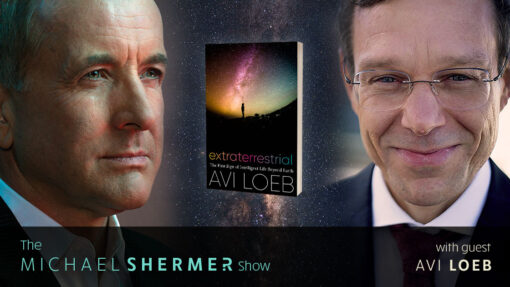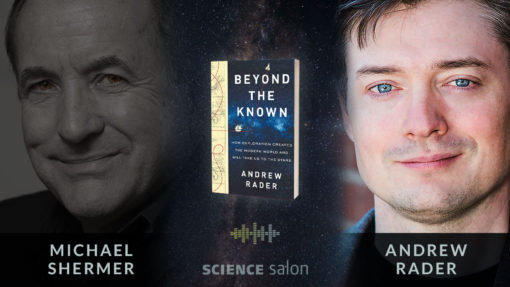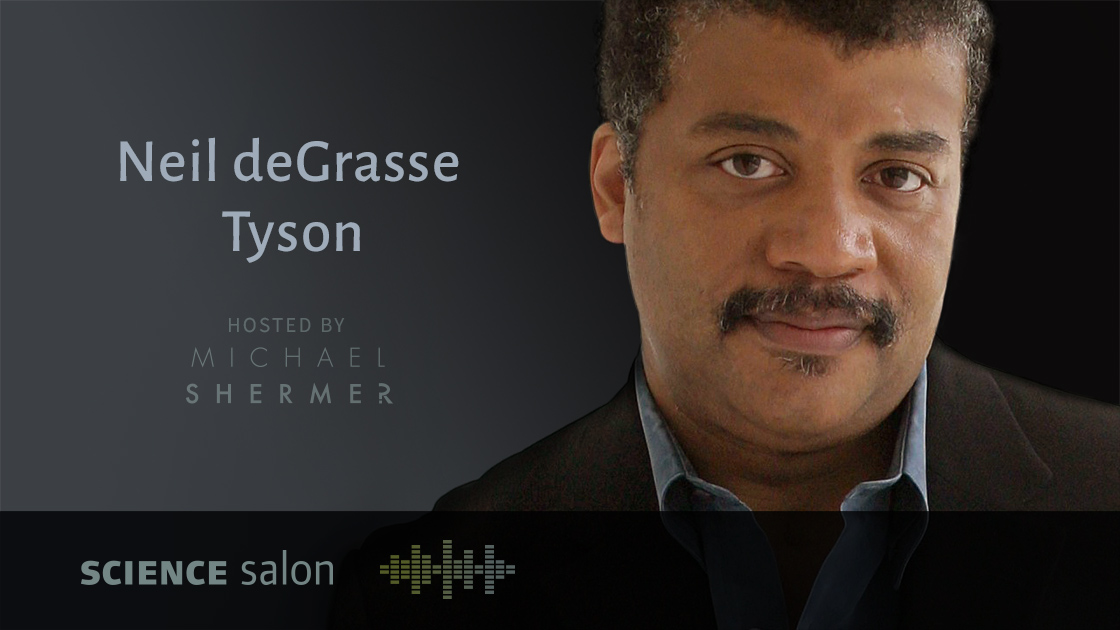technology

Shermer and Scheyder discuss: rare earth metals • lithium, copper, • aluminum and other precious metals • how much rare earth metals will we need by 2050, 2100, and beyond • combatting climate change • electric vehicles • recycling electronic waste • how lithium-ion batteries work • Can renewables completely replace fossil fuels without nuclear? • how mining works in the U.S., China, Chile, Russia, elsewhere • public vs. private ownership of mines • Native American land rights.

Advances in civilization are driven by the availability of excess energy. As the human population has exploded over the past two centuries, the global consumption of energy has also drastically expanded. But the current economic model is unsustainable without the development of a clean, unlimited source of energy. Space-based solar power (SBSP) can directly access the power of the Sun, and has the potential to be that clean, unlimited baseload power source of energy for the entire planet.

Shermer and Winchester discuss: how to become a professional writer • ChatGPT, GPT-4, and AI • knowledge as justified true belief • What is truth? • Are we living in a post-truth world of fake news and alternative facts? • education, past and present • books and the printing press • the history and future of encyclopedias • museums: repatriating objects taken during colonialism • print and broadcast journalism • internet and knowledge.

Shermer and Twenge discuss: untangling interacting causal variables (age, gender, race, religion, politics, SES, big events, slow trends, time-period effects, and generational effects) • fuzzy sets/conceptual categories • how historical events effect generations: the Great Depression, WWII, the Cold War and its end, AIDS, 9/11, The Great Recession, Covid-19, #metoo, #BLM, trans, AI • how long-term trends effect generations • technology as a driver of generational differences • civil rights, women’s rights, gay rights, trans rights • abortion and reproductive…

Michael Shermer speaks with University Professor of Philosophy and Neural Science and codirector of the Center for Mind, Brain and Consciousness at New York University, Dr. David Chalmers, about his book Reality+: Virtual Worlds and the Problems of Philosophy.
Michael Shermer speaks with University Professor of Philosophy and Neural Science and codirector of the Center for Mind, Brain and Consciousness at New York University, Dr. David Chalmers, about his book Reality+: Virtual Worlds and the Problems of Philosophy.

Shermer and Loeb discuss: anomalies in science and astronomy in particular • Galileo and Saturn • Signal Detection Theory • face on Mars • Is Oumuamua ETI in origin? • Intelligent Design • Carl Sagan and SETI • Law of Very Large Numbers • How many unknown knowns could account for Oumuamua? • Kip Thorne • gravitational waves • multiverse theory, and more…
In episode 157 of The Michael Shermer Show, Dr. Shermer speaks with Avi Loeb about his new book Extraterrestrial: The First Sign of Intelligent Life Beyond Earth which outlines his controversial theory and its profound implications for science, religion, and the future of our species and our planet.

In this special episode of the Science Salon Podcast, Michael Shermer catches up with Douglas Murray one year after the publication of his bestselling book The Madness of Crowds, now out in paperback, with an Afterword update on all that has happened the past year, one of the most momentous in living memory.
In this special episode of the Science Salon Podcast, Michael Shermer catches up with Douglas Murray one year after the publication of his bestselling book The Madness of Crowds, now out in paperback, with an Afterword update on all that has happened the past year, one of the most momentous in living memory.

For the first time in history, the human species has the technology to destroy itself. But having developed that power, humans are also able to leave Earth and voyage into the vastness of space. After millions of years of evolution, we’ve arrived at the point where we can settle other worlds and begin the process of becoming multi-planetary. How did we get here? What does the future hold for us?
In Science Salon # 120 Michael Shermer speaks with Andrew Rader about his book Beyond the Known: How Exploration Created the Modern World and Will Take Us to the Stars. PLUS is Göbekli Tepe, a 12,000 year old site in Turkey, proof of a lost civilization, or is there another answer?
In Science Salon # 37, Michael Shermer and Neil deGrasse Tyson take a deep dive into the history of science and war, and the strange but productive alliances that have been formed over the centuries—particularly those between astrophysicists and politicians, governments, military, and corporations.

In Science Salon # 37, Michael Shermer and Neil deGrasse Tyson take a deep dive into the history of science and war, and the strange but productive alliances that have been formed over the centuries—particularly those between astrophysicists and politicians, governments, military, and corporations.
Where is technology headed? What is the true nature of its increasing presence in our society? And how do the goals of the technological agenda relate to humanity’s goals? In this lecture, Kevin Kelly, one of the founding editors of Wiredmagazine, discusses the system of technology that he calls the “technium,” which unconsciously “wants” to head in certain directions, just as do life and evolution.
In this week’s eSkeptic, Tauriq Moosa reviews Michio Kaku’s book entitled Physics of the Impossible: A Scientific Exploration of the World of Phasers, Force Fields, Teleportation and Time Travel.
One hundred years ago, scientists would have said that lasers, televisions, and the atomic bomb were beyond the realm of physical possibility. In his new book, Physics of the Impossible, the renowned physicist Michio Kaku explores to what extent technologies and devices deemed equally impossible today might become commonplace in the future…

















